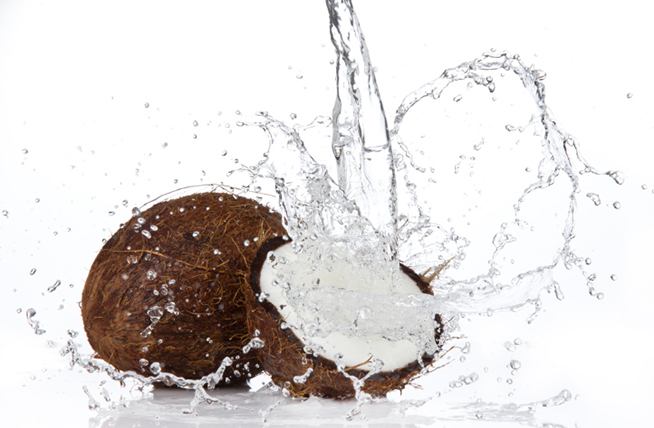The Truth about Coconut Water
By Claire Georgiou, Reboot Naturopath, B.HSc ND
There is a lot of excitement about the benefits of coconut water. Everywhere you turn there is a shelf filled with coconut water in many flavours and brands that once contained soft drinks or sodas.
First time I tried coconut water I thought it was awful then the next time I fell in love with it particularly when it is super cold straight from the coconut! Last time I had a fresh coconut I finished it in a flashed and started eyeing off my husband’s but luckily for him he drank it fast! I found coconut water during pregnancy helped reduce nausea and improved my energy. It became my go-to when feeling queasy (and still does since I am pregnant again!).
When buying coconut water it is very important to purchase the plain 100% coconut water that has no extras such as preservatives, sugar, flavours and added juice. The best way to ensure you are buying a good product is check the ingredients that should only read coconut water. Coconut water can be purchased in bottles, tetra packs and cans (make sure they are BPA free!). When it is possible it is best to consume straight from the coconut as this has not been pasteurised.
Fresh coconuts for drinking are typically harvested from the tree while they are green, each can contain between 200mls to 1 litre (6oz to 64oz). Coconut water is a health staple in many cultures world-wide and traditionally has been used for many health concerns such as intestinal infections, kidney stones, healthy skin, diarrhoea, vomiting, fever and heat related conditions in both adults and children.
Coconut water can be a great natural option as a quick electrolyte replenishing drink as it contains high amounts of potassium and moderate amounts of magnesium, sodium, calcium, chloride and phosphate. It also contains smaller amounts of amino acids, iron, vitamin C and B complex vitamins.
Coconut water is fat free(99%), cholesterol free, low in calories and doesn’t contain any artificial colours, preservatives or sweeteners that are sometimes present in commercial sports drinks.
Coconut water per glass (250mls/8oz) contains approximately 45 calories, 600mg of potassium, 252mg of sodium, 58mg of calcium, 60mg of magnesium and 48mg of Phosphorus. Potassium is necessary for maintaining heartbeat, muscle contraction, nerve transmission, fluid balance, as well as carbohydrate and protein metabolism.
The typical Western diet is low in potassium and high in sodium due to high consumption of processed foods. Research has shown that such an imbalance is unhealthy and can increase the risk of death from heart disease and a even higher risk of death from all causes.
Coconut water can be used as an excellent electrolyte beverage during intensive or extended exercise (60+ minutes), for dehydration, headache, intestinal upsets, hangovers, diarrhoea, vomiting and muscle spasms. Here is more on electrolytes in the diet and during a Reboot!
Some studies suggest that cytokinins (e.g., kinetin and trans-zeatin) in coconut water showed anti-ageing, anti-carcinogenic, and anti-thrombotic effects. Coconut water is also composed of many naturally occurring bioactive enzymes such as acid phosphatase, catalase, dehydrogenase, diastase, peroxidase, RNA-polymerases etc. In effect, these enzymes help in the digestion and metabolism.
There are studies that indicate that coconut water can reduce high blood sugar levels and oxidative stress and studies show promise for coconut water in the reduction for high blood pressure due to its potassium content and other nutritional components and may also reduce edema or swelling due to its natural diuretic action.
What benefits have you found with coconut water?
